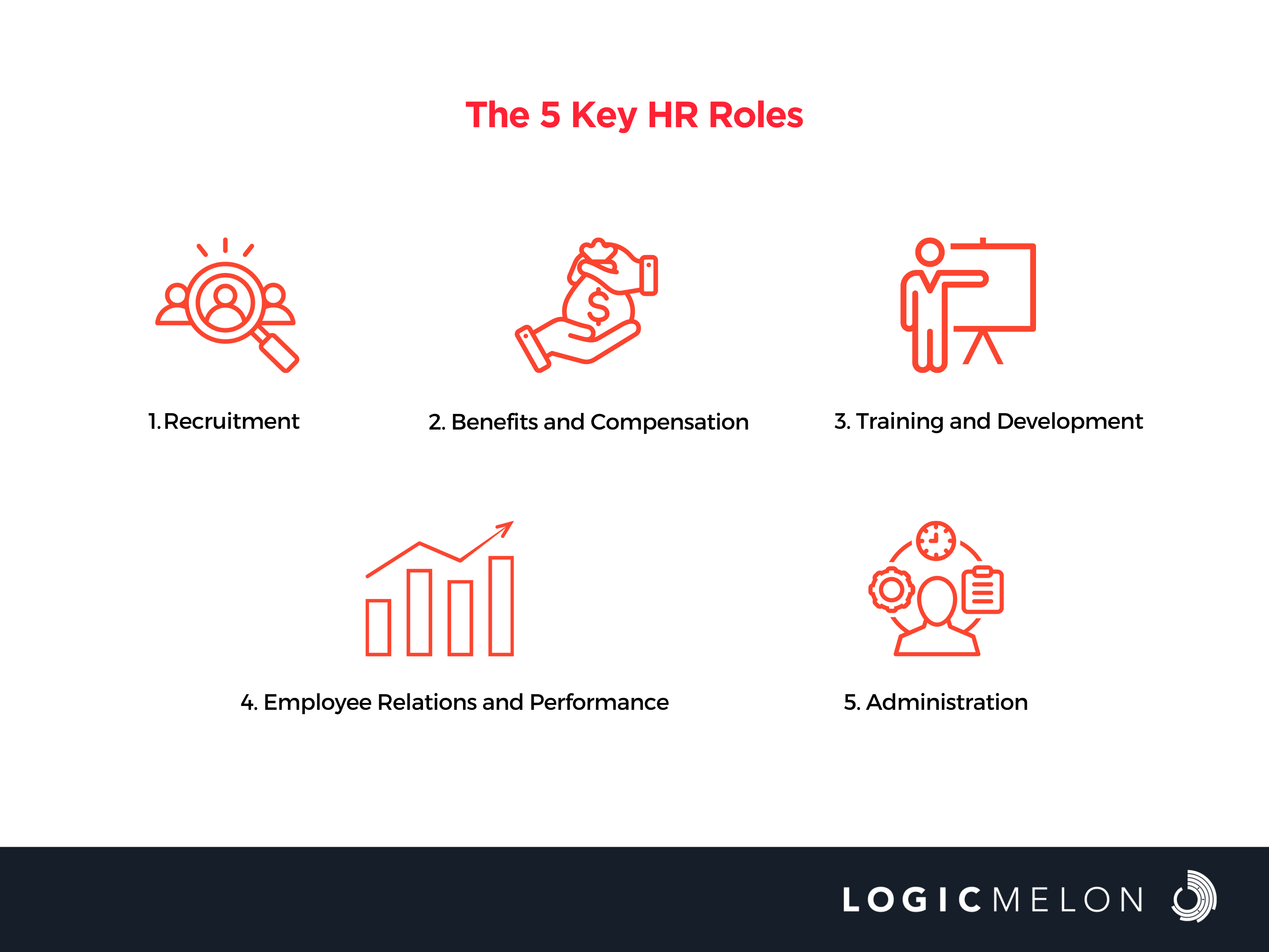What Does HR Do: HR Roles and Responsibilities
Human resources (HR) management is critical to the success of a business, as it ensures employee satisfaction and company growth. In this article, we will explore the roles and responsibilities of HR professionals and how fulfilling these roles can benefit both the organisation and its clients. We will also discuss the skills required to work in HR, the five key HR roles, and HR’s role in supporting employees.
Skills Required for Working in HR
HR professionals require a combination of practical and technical skills. These skills vary depending on the job and include active listening, communication skills, administrative skills, and training skills.
Active listening helps HR professionals pay attention to crucial details, demonstrating to employees that their input is valued. Communication plays a vital role in HR, as HR professionals talk to people a lot during interviews, training sessions, and casual discussions. HR professionals also need administrative skills to handle responsibilities such as payroll, leave of absence, personnel files, and more. Lastly, training skills are essential for one-on-one or group sessions to train people, which can be useful for onboarding, reintegration, and helping frontline managers with personnel difficulties.
The Five Key HR Roles
There are five primary HR roles: recruitment, benefits and compensation, training and development, managing employee relations and performance, and administration.

1. Recruitment
Recruitment involves every stage of the employment process, from applicant sourcing to onboarding. HR professionals work with hiring managers to identify job requirements and look for potential candidates. They also use job boards, career websites, social media, employee recommendations, and more to identify potential candidates. To determine whether the applicants are a suitable fit for the role, they work with department managers. After selecting a candidate, HR professionals assist them with the onboarding process.
2. Benefits and Compensation
Compensation and benefits involve making sure that the business provides employees with a competitive salary and good benefits. HR professionals handle payroll processing, collaborate with an accounting division, or work for a company that manages payment distribution. They also research benefits offered by rival businesses in the same region and sector.
3. Training and Development
Training and development help employees stay up-to-date on their skills, execute their jobs more effectively, and promote a strong workplace culture. A variety of different methods are used to teach skills, with the most preferred being instructor-led classes. HR professionals create a list of training and development opportunities available within the organisation, hire third parties, or include external resources that can offer the knowledge and abilities employees require.
4. Managing Employee Relations and Performance
Managing employee relations and performance involves everything a business does to promote good employee relationships, such as participating in discussions regarding employee rules. HR professionals collaborate with management to create an organisational structure and culture that supports the business’s strategic aims. They also serve as a liaison between management and employees to ensure effective communication.
5. Administration
Administration involves keeping care of papers, particularly employee records pertaining to attendance, vacations, medical leaves, and other employee data, and ensuring that the business complies with labour laws governing working conditions and hours. This helps ensure that workers receive the appropriate compensation and benefits in accordance with their job status, hours worked, and pay rates.
HR’s Role in Supporting Employees
HR professionals can support employees in several ways. Firstly, by providing a well-defined career path within the business, they encourage employees to stay and progress rather than seek employment elsewhere. Secondly, by managing programmes for continuing education that are advantageous to the employer and the employee, HR professionals give workers the chance to grow their skill sets and knowledge of the sector. Lastly, by overseeing employee assistance programmes, retirement planning, health insurance policies, and disability benefits, HR professionals can aid staff members in handling issues and stress outside of the office that might otherwise affect their productivity.
Frequently Asked Questions
1. What are the types of jobs in HR?
There are various roles in HR, including:
- Human resources assistant
- Human resources director
- Recruiter
- Training and development specialist
- Employee relations manager
2. What are the fundamentals of human resource management?
Efficient HRM is based on the following cornerstones:
- Recruitment and selection
- Performance management
- Learning and development
- Succession planning
- Compensation and benefits
- HR information systems
- HR data and analytics
3. What are HR processes?
HR processes refer to the essential tactics required to support the employee experience and lifecycle. These processes require strategic planning to ensure they align with predetermined boundaries and goals.
Closing Thoughts
So, there you have it – a concise overview of the five key HR roles. The human resources division is a crucial foundation for business development, responsible for more than just hiring, training, and compensation. HR helps to create a company culture that ensures everyone is satisfied with their assigned tasks. After all, a company is only as good as its employees. So, it’s essential to have a robust HR department in place to manage and support them.
LogicMelon
Award-winning recruitment software that will find, attract, hire and analyse the way you want to work. At LogicMelon, we have experienced software recruitment marketing specialists to help you build effective recruitment solutions supported by the best customer service you’ll find anywhere!
Email: sales@logicmelon.com or call LogicMelon (UK) +44 (0) 203 553 3667 (USA) +1 860 269 3089
Recruitment Crisis Management
Recruitment crisis management requires adaptability, strategic thinking, and a proactive approach to address talent shortages and avoid disruptions.
Candidate Matching: Everything You Must Know
To successfully implement an ATS, it is important to consider certain factors. Learn more by reading this blog.
Streamlining Recruitment: ATS Implementation Best Practices
To successfully implement an ATS, it is important to consider certain factors. Learn more by reading this blog.


